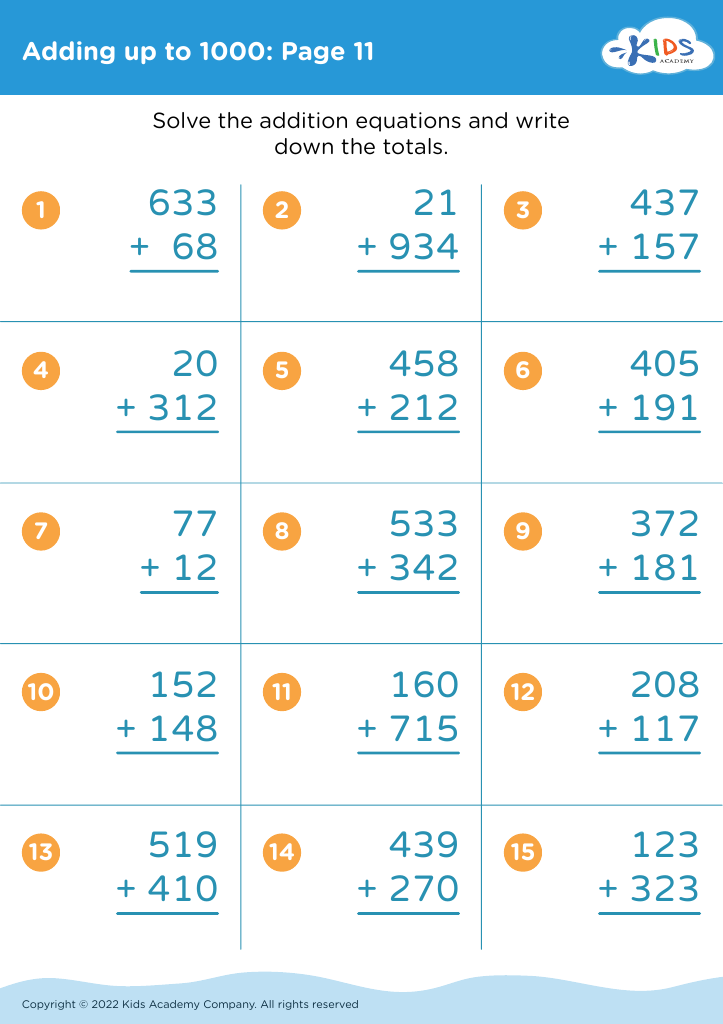Enhance problem-solving Addition Worksheets for Ages 4-8
3 filtered results
-
From - To
Discover engaging and effective Enhance Problem-Solving Addition Worksheets designed for children ages 4-8! Our interactive resources help young learners develop essential addition skills while fostering critical thinking and problem-solving abilities. Each worksheet is thoughtfully crafted to challenge students with a variety of fun exercises, including word problems and visual aids that encourage deeper understanding. Perfect for both classroom and home use, these worksheets also support teachers and parents in tracking progress. Join us in making math exciting and accessible for early learners—transforming hesitant students into confident problem solvers through practice and creativity! Get started today and watch your child's skills thrive!
Enhancing problem-solving skills in addition for children ages 4 to 8 is critical for several reasons. First, this developmental stage is foundational; children's cognitive abilities are rapidly expanding, and the introduction of effective problem-solving strategies helps them grasp basic math concepts intuitively. When parents and teachers focus on enhancing addition skills through problem-solving, kids learn to approach challenges critically and creatively, fostering a growth mindset.
Moreover, solid mathematical foundations not only assist in academic achievement but also bolster confidence. Children who become comfortable with addition and problem-solving are more likely to engage with higher-level math as they progress in their education. Learning to solve addition problems also improves overall cognitive skills, such as logic and reasoning, which are applicable beyond mathematics.
Additionally, addressing various problem-solving strategies exemplifies real-world applications of math, making learning more relevant and interesting. Collaborative activities and games further encourage teamwork and communication while reinforcing basic skills. Ultimately, when parents and teachers prioritize enhancing problem-solving addition, they are crucially helping children develop resilience, confidence, and independence, which are all essential traits for successful learners and thoughtful individuals in our complex world.




















